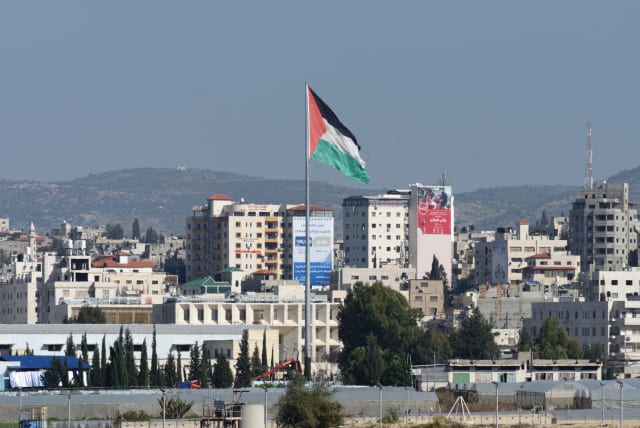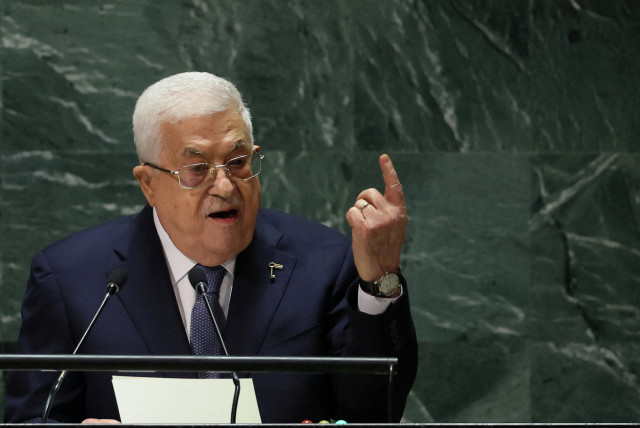Agreeing to a peace deal with Israel negates the existence of the PLO - opinion

Is the PA prepared to reinvent itself as a genuinely peaceful body? The evidence overwhelmingly suggests that it is not.
We hear a good deal these days about how to make a two-state solution happen. Much of the analysis focuses on changes the Palestinian Authority would have to make for it to be acceptable to Israel. We know the routine: change school curricula, stop terror incitement, etc. This formula today reflects the thinking of the Biden administration and, specifically, Secretary of State Antony Blinken, who speaks about the need for the PA to reform and revitalize itself.
The question that is not seriously addressed is whether the PA, or more accurately the PLO, truly wants a two-state solution: that is, a Palestinian state living in peace side-by-side with the Jewish state.
Is the PA prepared to reinvent itself as a genuinely peaceful body? The evidence overwhelmingly suggests that it is not. Any changes that might be made would be merely cosmetic. This is not an entity that reflected a genuine spirit of peace at the time of its founding but then gradually went rogue. The PA was founded during a time of wishful thinking in Israel and its true nature was misjudged from the beginning, or perhaps willfully ignored.
The Palestinian Authority was established in the course of the Oslo II Accords signed in 1994 between Israel and the Palestinian Liberation Organization. It was intended to be an interim administrative entity that would function for five years, during which time there would be negotiations for a final status agreement.
The history and goals of the PLO
It functions under the umbrella of the PLO, which had declared itself to be the representative of Palestinians worldwide. The majority of its members are also members of the PLO. Fatah – a terror-associated faction – is the controlling element both of the PLO and the PA.
The PLO itself was founded in 1964, at a meeting of the Arab League in Cairo. The role of Egyptian President Gamal Abdul Nasser was pivotal, and Nasser protégé Ahmad Shuqeiri was its first chairman. In its early years, it was pan-Arabic: This was not a case of Palestinians claiming their land, but of Arabs more broadly utilizing the Palestinian claim against Israel.
By the time Egyptian-born Yasser Arafat, founder of Fatah, assumed PLO chairmanship in 1969, it had become nationalistic. It sought the “liberation” of Palestine, i.e., the eradication of Israel via violent means, and was responsible for major terror attacks.
AFTER ISRAEL won the 1973 Yom Kippur War, the public face of the PLO – not its goals! – changed. Now there was recognition that it would not be possible to eliminate Israel utilizing violent methods. Something else was required.
Thus, in 1974 the Phased Program was born, otherwise known as the Strategy of Stages, which called for the liberation of Palestine in stages. Each liberation step paved the way for the next, as Israel was weakened. The key here was communicating an impression of moderation. Strategic deception for purposes of achieving PLO goals was considered acceptable, and for the first time the PLO ventured into the political arena.
This leads us to the Oslo I Accords, signed between Israel and the PLO on the White House lawn in 1993. When a plan for an agreement with the Palestinians was first hatched in Oslo, it was considered prudent to involve the PLO. The reasoning was that an agreement with local Palestinians in the West Bank would not carry the weight of an agreement signed by the organization that spoke for all Palestinians. Thus were Yasser Arafat and his cronies, terrorists all, brought in from Tunis.
A mere day after the signing, Arafat explained on Jordanian TV: “Since we cannot defeat Israel in war, we do this in stages. We take any and every territory that we can of Palestine… and use it as a springboard to take more.”
Arafat never abandoned terror, no matter what words he offered for Western consumption. Dennis Ross, working in the Clinton administration to advance negotiations, admitted as much, saying that “Arafat never relinquished the terror card.” Neither has Mahmoud Abbas, an Arafat protégé and himself a terrorist, ever relinquished violence. He fosters and promotes terror while offering a deceptive face of peace.
Any negotiation that would establish a permanent peace with Israel runs counter to the real goals of the PLO. Thus did first Arafat and then Abbas turn down offers for a state, made by then-prime minister Ehud Barak in 2000, and subsequently by then-prime minister Ehud Olmert in 2008. The PLO will never, ever sign on to the recognition of Israel and the end of conflict.
The Israeli people have grown up and are, except for a minority faction on the Left, clear-eyed about the reality of the PA. We are not having it: no recognition of a Palestinian state, nor placement of the PA in Gaza, nor negotiations for a two-state solution. Abbas is still playing according to the Strategy of Stages, as will his successor.
Any reform of the PA, as touted by Blinken, would be false and carry within it the germs of violence. Unfortunately, it is too much to hope that Blinken might see this.
The writer is the author of Disclosed: Inside the Palestinian Authority and the PLO. She is an investigative journalist in Israel and blogs at arlenefromisrael.info.
Jerusalem Post Store
`; document.getElementById("linkPremium").innerHTML = cont; var divWithLink = document.getElementById("premium-link"); if (divWithLink !== null && divWithLink !== 'undefined') { divWithLink.style.border = "solid 1px #cb0f3e"; divWithLink.style.textAlign = "center"; divWithLink.style.marginBottom = "15px"; divWithLink.style.marginTop = "15px"; divWithLink.style.width = "100%"; divWithLink.style.backgroundColor = "#122952"; divWithLink.style.color = "#ffffff"; divWithLink.style.lineHeight = "1.5"; } } (function (v, i) { });

